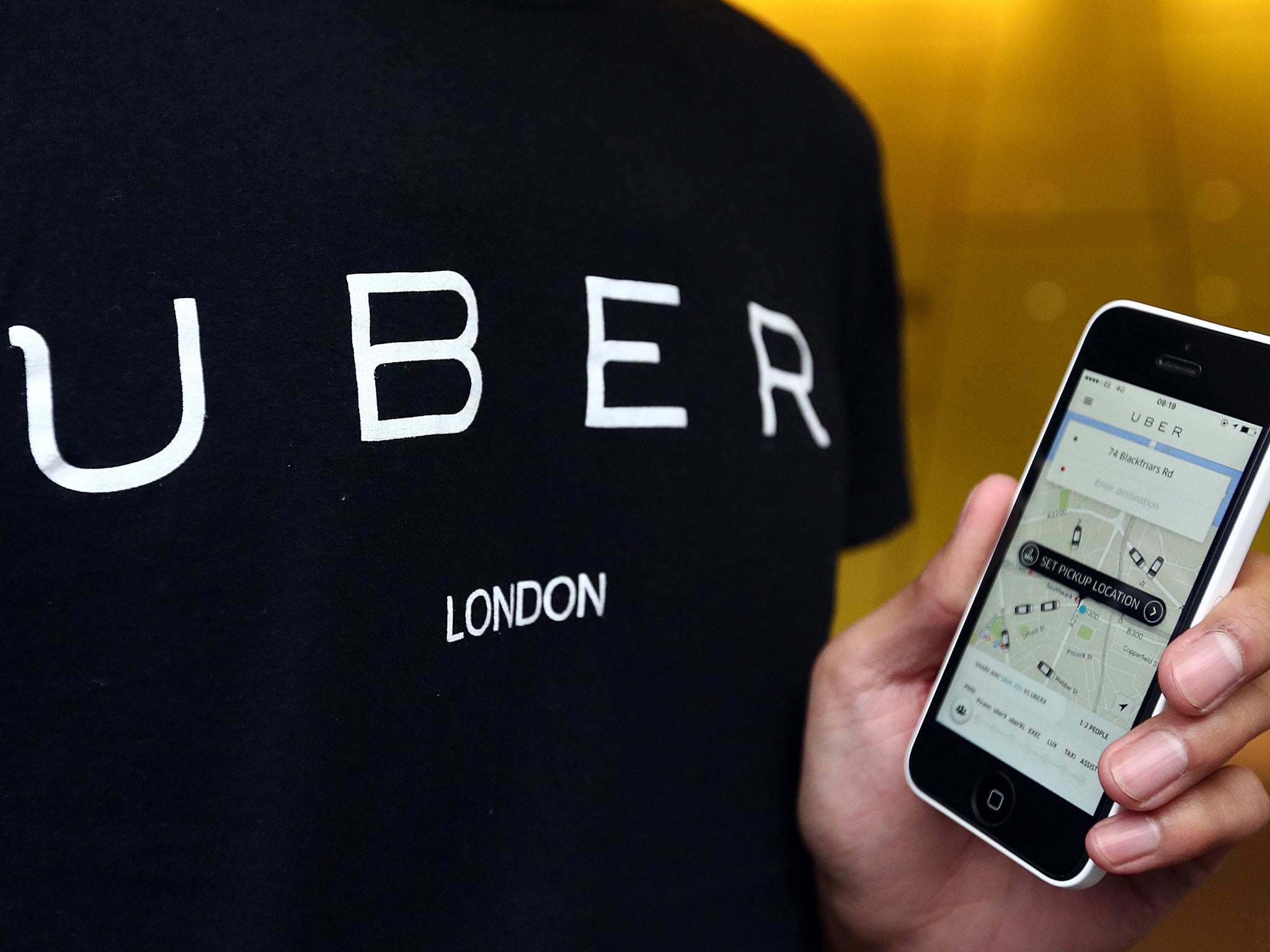Sharing economy: Growth of part-time, flexible jobs offered by companies such as Uber is a double-edged sword
The “sharing economy” is also larger than some might think; some five million Britons are now paid for working within it

Your support helps us to tell the story
From reproductive rights to climate change to Big Tech, The Independent is on the ground when the story is developing. Whether it's investigating the financials of Elon Musk's pro-Trump PAC or producing our latest documentary, 'The A Word', which shines a light on the American women fighting for reproductive rights, we know how important it is to parse out the facts from the messaging.
At such a critical moment in US history, we need reporters on the ground. Your donation allows us to keep sending journalists to speak to both sides of the story.
The Independent is trusted by Americans across the entire political spectrum. And unlike many other quality news outlets, we choose not to lock Americans out of our reporting and analysis with paywalls. We believe quality journalism should be available to everyone, paid for by those who can afford it.
Your support makes all the difference.They call it the “sharing economy” and it is an evolving and apparently very welcome application of the new technologies to working life – and, indeed, to economic growth. At a time when real incomes are still facing a squeeze, digital technologies have delivered savings in everything from car insurance to taxi rides. Tinder and the like have reduced the cost (in financial, if not emotional terms) of finding a mate.
The “sharing economy” is also larger than some might think; some five million Britons are now paid for working within it, whether that’s by driving an Uber cab or doing someone else’s menial labour through jobs picked up on the TaskRabbit site, to give just two examples.
For all the social and economic changes it has wrought, the web still has the potential to transform paid employment further. Already one of the most flexible in Western Europe, the British labour force looks set to be digitally revolutionised in the coming years.
That is mostly good news. One of the minor miracles of the recent recession was the resilience of the British labour market. As output fell, banks collapsed and stock markets gyrated, people avoided unemployment in greater numbers than in any previous downturn. We continue to see employment holding up remarkably well – though there is no substitute for long-term investment, especially in infrastructure, to cement this happy situation and to boost productivity levels, and wages and living standards with them.
But while the “sharing economy” sounds benign enough, it is, in its way, not so very different to the traditional “grey economy”. And we know what that means.
Greater informality in working relationships easily robs the Exchequer of much-needed revenues, narrowing the tax base still further and adding to the pressure on already overburdened taxpayers in the middle. When the rich can easily skip the country or move their money around tax havens, and the poor have too little to pay taxes in the first place, it is the British middle classes, captive in the face of the Treasury, who have to bear the brunt of restoring the public finances.
There are other dangers, too, in the informalisation of the economy. Employment laws are harder to enforce, and measures such as the minimum wage much more difficult to police. Workers endure the costs as well as the benefits of flexibility: no protection of their income in case of ill health, and no rights if their employment is suddenly withdrawn.
It also means that trade unions will find it harder, if not impossible, to organise in these new professions. Indeed one of the most striking aspects of the changing private sector workforce in recent decades is how damaging it has been to the unions, whose strength now more than ever is concentrated in the public sector. Some may regard that as something of little consequence, if the view is taken that unions tend to depress employment levels by pricing their members out of jobs; but the fact remains that a workplace with traditional groupings of workers and management seems to be in decline. The rise of self-employment, part-time and casual work seems to confirm these trends.
It is now 50 years since British manufacturing output and employment peaked. Today, we are a service-sector economy with not much more than £1 in every £10 the nation earns derived from its Victorian-era role as the workshop of the world. There are fewer large workplaces and jobs for life, and the expansion of the service sector, despite official attempts to boost “the makers”, shows no signs of slowing.
Whether we like it or not, digitisation is changing the way that we work.
Join our commenting forum
Join thought-provoking conversations, follow other Independent readers and see their replies
Comments